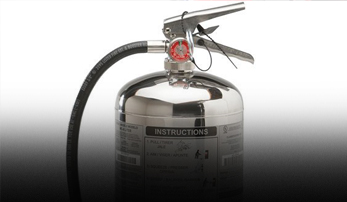From Accras bustling markets to quiet rural communities, what significant events are shaping ghana n
- From Accras bustling markets to quiet rural communities, what significant events are shaping ghana news today and redefining the national landscape?
- Economic Indicators and Business Climate
- Political Developments and Governance
- Electoral Commission Preparations
- Regional Political Dynamics
- Social Issues and Community Life
- Environmental Concerns and Sustainable Development
- Impact of Illegal Mining
- Climate Change Adaptation Strategies
- Cultural Events and National Identity
From Accras bustling markets to quiet rural communities, what significant events are shaping ghana news today and redefining the national landscape?
Ghana continues to be a nation in flux, with events unfolding rapidly across its diverse landscape. From economic shifts to political developments and social changes, understanding ghana news today requires a nuanced perspective. This comprehensive overview delves into the key happenings, providing in-depth analysis and context for informed citizens and observers alike. The country’s dynamic environment demands constant attention, and staying informed is crucial for participation in its ongoing progress.
Economic Indicators and Business Climate
The economic health of Ghana is a central theme in current affairs. Recent reports indicate fluctuations in the cedi’s value against major currencies, coupled with ongoing negotiations with the International Monetary Fund (IMF) regarding debt restructuring. These factors significantly impact business confidence and investment, particularly within the agricultural and manufacturing sectors. The government is actively promoting policies designed to attract foreign direct investment and stimulate local entrepreneurship, but challenges persist with inflation and unemployment rates.
The Bank of Ghana’s monetary policy decisions play a vital role in stabilizing the economy. Analysts are closely monitoring inflation figures and the effectiveness of measures taken to control price increases. Significant investment is being directed towards infrastructure projects, including road construction, railway expansion, and improvements to port facilities, all intended to facilitate trade and economic growth.
| Inflation Rate | 23.5% | 24.1% |
| GDP Growth Rate | 3.6% | 3.5% |
| Cedi Exchange Rate (USD) | 12.5 GHS | 12.7 GHS |
| Unemployment Rate | 12.8% | 13.0% |
Political Developments and Governance
Ghana’s political scene is marked by ongoing debates about constitutional reforms and the need for greater transparency in governance. The major political parties, notably the New Patriotic Party (NPP) and the National Democratic Congress (NDC), are preparing for the upcoming elections, each outlining their platforms and vision for the country. Public discourse revolves around issues such as corruption, healthcare access, and educational opportunities.
Recent legislative actions have focused on strengthening anti-corruption measures and promoting accountability within government institutions. The judiciary is dealing with high-profile cases linked to alleged financial misconduct, which are garnering significant media attention. Civil society organizations are actively engaged in advocating for good governance and citizen participation in the political process.
Electoral Commission Preparations
The Electoral Commission is undertaking extensive preparations for the upcoming elections. These preparations include voter registration exercises, mapping of electoral districts, and implementation of biometric identification systems to ensure the integrity of the electoral process. Stakeholders are calling for comprehensive independent observation and monitoring of the elections to ensure the process is completely fair, transparent and accessible to all eligible citizens. The commission is also working to address concerns about potential voter disenfranchisement and to mitigate the risk of electoral violence. Strengthening the electoral mechanisms is an important bedrock for Ghana’s democracy and political stability.
Regional Political Dynamics
Political dynamics vary significantly across Ghana’s 16 regions. The Northern Region remains particularly sensitive due to historical socio-economic disparities and lingering ethnic tensions. The government is actively implementing development programs aimed at addressing these inequalities and promoting peace and reconciliation. In the Ashanti Region, a stronghold of the NPP, discussions center around preserving the region’s economic prosperity while also addressing concerns about environmental sustainability. The Western Region, rich in natural resources, is facing challenges related to managing resource revenues equitably and minimizing the environmental impact of mining and oil extraction.
Social Issues and Community Life
Ghana faces complex social challenges, including access to quality healthcare, affordable education, and adequate housing. The ongoing urbanization trend is placing strain on infrastructure and resources in major cities like Accra and Kumasi. The nation grapples with unemployment, especially among youth, and the need for skills training and job creation.
Community-based initiatives are playing an increasingly vital role in addressing these issues. Non-governmental organizations and local volunteer groups are working to provide essential services, such as education, healthcare, and livelihood support, to marginalized communities throughout the country. Strengthening social safety nets and promoting inclusive development are top priorities.
- Access to Clean Water: Approximately 65% of the population has access to improved water sources.
- Healthcare Coverage: The National Health Insurance Scheme covers roughly 40% of the population.
- Literacy Rate: Ghana’s literacy rate stands at around 76.1%.
- Poverty Rate: Approximately 24.8% of the population lives below the national poverty line.
Environmental Concerns and Sustainable Development
Environmental degradation and climate change pose significant threats to Ghana’s long-term sustainability. Deforestation, illegal mining (galamsey), and pollution are major concerns. The government is implementing policies to promote reforestation, regulate mining activities, and encourage responsible waste management practices. Raising public awareness about environmental issues is also a key component of the nation’s approach to sustainability.
Investments in renewable energy sources, such as solar and wind power, are slowly increasing. Ghana has committed to reducing its carbon emissions in line with international agreements, but progress is constrained by financial and technological limitations. Community-based conservation efforts are proving effective in protecting biodiversity and promoting sustainable resource management.
Impact of Illegal Mining
Illegal mining activities (galamsey) have devastating consequences for the environment, including deforestation, water pollution, and soil degradation. The practice poses severe health risks to miners and nearby communities due to exposure to harmful chemicals, such as mercury. Efforts to combat galamsey have faced numerous challenges, including corruption, lack of enforcement capacity, and the economic incentives driving the practice. The government has implemented moratoriums on new mining permits and deployed security forces to clamp down on illegal operations, but the problem persists. A coordinated and multi-faceted approach is required for the sustained remediation of areas impacted by illegal mining and the revitalization of damaged ecosystems.
Climate Change Adaptation Strategies
Ghana is particularly vulnerable to the impacts of climate change, including rising sea levels, increased drought frequency, and extreme weather events. Coastal regions are at risk of erosion and flooding, while agricultural areas are susceptible to prolonged dry spells. The nation is implementing adaptation strategies, such as promoting climate-smart agriculture, investing in water conservation infrastructure, and strengthening disaster preparedness mechanisms. International collaboration and access to climate finance are essential for scaling up adaptation efforts and building resilience to climate change.
Cultural Events and National Identity
Ghana’s rich cultural heritage is a source of national pride and identity. Traditional festivals, music, dance, and art play a prominent role in community life. The country is investing in the tourism sector to showcase its cultural attractions and generate economic benefits. Preserving traditional knowledge and promoting cultural exchange are crucial for strengthening national unity and fostering a sense of belonging.
The country’s diverse ethnic groups each contribute to the vibrant tapestry of Ghanaian culture. Efforts are underway to promote inter-cultural dialogue and understanding, fostering harmony and cohesion across the nation.
- Homowo Festival (Ga People)
- Akwasidae Festival (Ashanti People)
- Bakatue Festival (Elmina)
- Agboya Festival (Volta Region)
| Homowo | Greater Accra | Celebrates a successful harvest. |
| Akwasidae | Ashanti | Honors ancestors and deities. |
| Bakatue | Central | Marks the opening of the lagoon for fishing. |
| Agboya | Volta | Celebrates the beginning of the yam harvest. |
Ghana’s evolving story continues to unfold, demanding vigilant observation and thoughtful engagement. Addressing the economic challenges, strengthening democratic governance, protecting the environment, and celebrating its cultural heritage will be paramount in shaping the nation’s future. A commitment to inclusive growth and sustainable development remains at the heart of the ongoing transformation.









Recent Comments